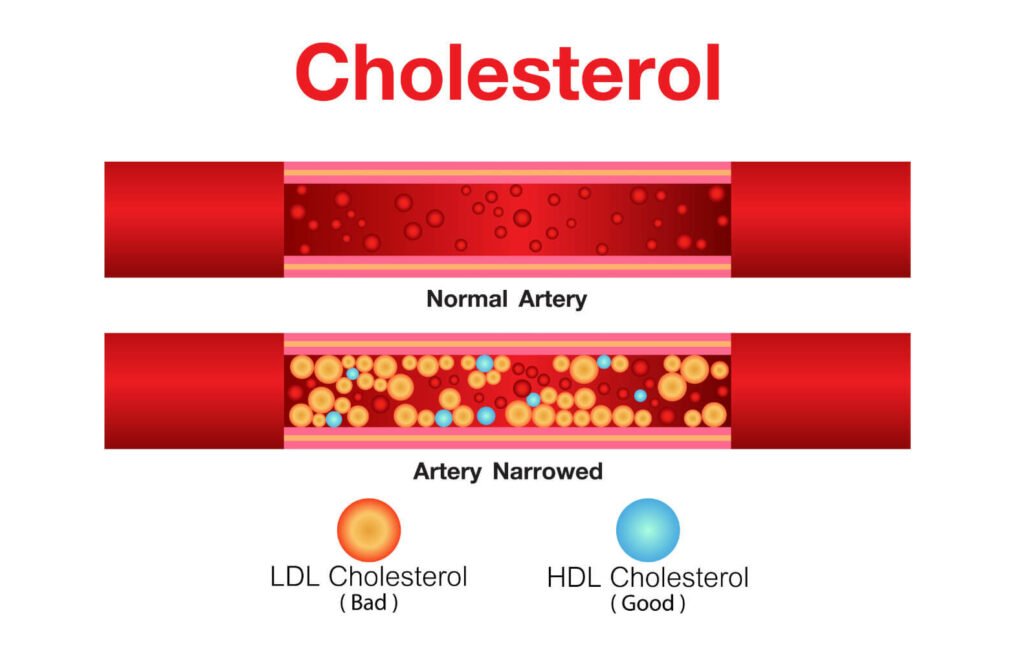The Keto Diet and Cholesterol: What You Need to Know
Introduction
The ketogenic diet, or keto diet, has been gaining popularity in recent years as a weight loss and health improvement strategy. The diet is high in fat, moderate in protein, and very low in carbohydrates. While the diet has been shown to be effective for weight loss and improving certain health markers, it’s important to consider the potential impact on cholesterol levels.
What is Cholesterol?
Cholesterol is a waxy, fat-like substance that is found in every cell of the body. It plays an important role in the body, but when levels become too high, it can increase the risk of heart disease. Cholesterol is produced by the liver and is also found in certain foods such as meat, dairy products, and eggs. The body needs cholesterol to build cell walls, produce hormones, and make vitamin D.
There are two types of cholesterol: LDL cholesterol (low-density lipoprotein) and HDL cholesterol (high-density lipoprotein). LDL cholesterol is often referred to as “bad” cholesterol because it can build up in the walls of the blood vessels, leading to a blockage. High levels of LDL cholesterol can increase the risk of heart disease and stroke. HDL cholesterol, on the other hand, is often referred to as “good” cholesterol because it helps remove LDL cholesterol from the bloodstream. High levels of HDL cholesterol are associated with a lower risk of heart disease.
The ratio of LDL to HDL cholesterol is also important in determining heart disease risk. A ratio of less than 3.5 is considered healthy. A ratio of 4.5 or higher is considered high-risk. Factors such as age, gender, and genetics can also affect cholesterol levels. It’s important to get your cholesterol checked regularly and work with a healthcare professional to manage your levels.

Keto Diet and Cholesterol: The Research
The keto diet is known for its ability to promote weight loss and improve certain health markers, such as blood sugar and insulin levels. However, the diet’s impact on cholesterol levels is not as clear. Some studies have found that the diet can increase levels of HDL cholesterol and decrease levels of LDL cholesterol. However, other studies have found that the diet can also increase LDL cholesterol.
One study published in the Journal of Lipid Research in 2014 found that the keto diet led to an increase in HDL cholesterol and a decrease in LDL cholesterol in obese men and women. The study participants were on the diet for 12 weeks and experienced an average weight loss of 10 pounds.
In their study of the effect of an LCHF-diet on blood lipids, Burén et al. became worried because, after a few weeks, the participants’ LDL-cholesterol (LDL-C) increased significantly
https://www.ncbi.nlm.nih.gov/pmc/articles/PMC8234882/
In October 2019, the National Lipid Association issued a position paper on the correlation between lipids and low-carb and very-low-carb, ketogenic diets in the Journal of Clinical Lipidology.
Conclusion:
It’s important to note that everyone’s response to the keto diet may be different and it’s important to monitor your cholesterol levels and consult with a healthcare professional before starting the diet. The keto diet is a very restrictive diet, it’s important to make sure that you’re getting all the necessary nutrients and that the diet is safe for you. In conclusion, the ketogenic diet or keto diet can have an impact on cholesterol levels, but it’s not clear.
Some studies have found that the diet can improve cholesterol levels by increasing HDL cholesterol and decreasing LDL cholesterol, while others have found that the diet can increase LDL cholesterol. It’s important to consult with a healthcare professional and monitor your cholesterol levels before starting the diet.
The keto diet is a restrictive diet, so it’s essential to make sure that you’re getting all the necessary nutrients and that the diet is safe for you






